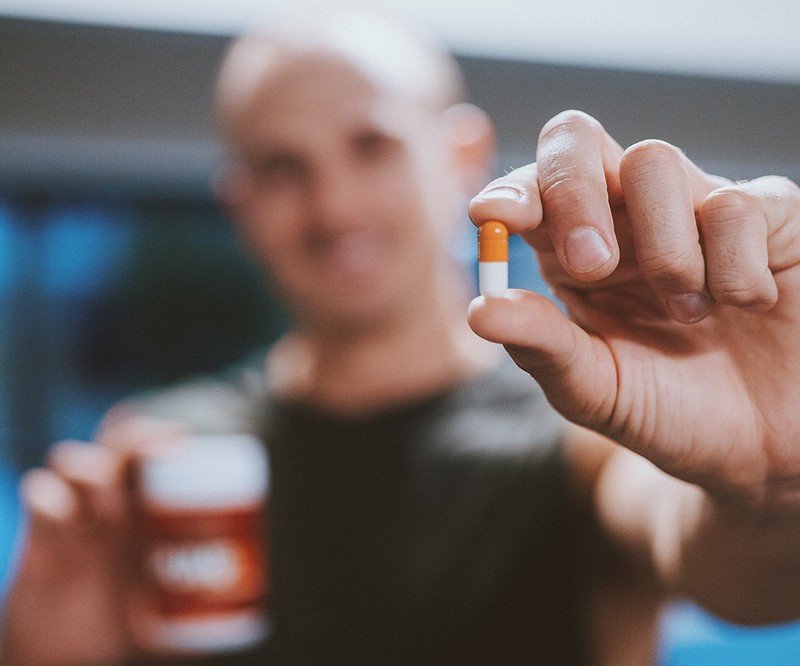How Going to the Gym Helps Your Career

How health and fitness helps you at work
The first thing we need to understand is that no matter how busy we are, there is always time to exercise.
A recent report into CEOs from the Harvard Business Review found that most of the leaders surveyed dedicated 9 percent of their workday towards exercise.
And these are people that are obviously very time poor.
But what these CEOs understand is how important exercise is to reducing stress!
Regular exercise means we can use our time better and thus get more done.
Also, exercise bolsters our mood and wellbeing; a better attitude and state of mind means our daily work can become far less daunting.
And sometimes, our jobs can really put pressure on our mental health or leave us feeling burnt out quickly.
But research shows exercise helps us combat depression, anxiety, cognitive impairments, and fatigue.
And then there's the big one: productivity.
How exercise helps productivity
Bosses love a productive staff member, and we're more likely to excel in our careers if we can find ways to be more efficient.
This study found that when workers moved more or exercised, they were better at meeting tough deadlines and at performing cognitive tasks.
The researchers estimate that exercising for 30 to 60 minutes during a workday bolsters total productivity by an average of 15 per cent.

Moreover, exercise is terrific for the immune system and helps us fight off potential illness by increasing basic immune cell count and function.
And if we're not at work, we're either not performing at all. And if we're sick at work, we're not performing at our best.
For example, health-related productivity loss, or the time of imparied performance at work due to illness, was reported in 50-70 percent of Europeans recently.
Exercise and creativity
Moreover, exercise's ability to assist in creativity is really eye opening. This idea was something first taken advantage of by the great philosopher Henry David Thoreau, who used walking to enhance his creativity. He said:
“The moment my legs begin to move my thoughts begin to flow – as if I had given vent to the stream at the lower end and consequently new fountains flowed into it at the upper.”
And his assumptions were right! This study found that walking meetings, as opposed to sitting at a desk in a chair, increases creativity by 60 per cent.
And walking aside, running will also help us achieve the same. This study has 23 co-ed students run for twenty minutes.
During the first and last class sessions, before their running, they and a control group were tested on three measures of creative thinking:
- Verbal adaptability
- Diversity
- Originality
And after their running, there were significant gains in creativity.

Exercise helps you stay at the top of your career game
It suggested that once you reach your career apex, exercise helps you stay there.
This study found that aerobic exercise increases cortical thickness and brain function. We're talking about memory, thinking and cognitive control -- in those even as young as twenty!
And it's not too late to start; the study found the same benefits occurred in those aged up to 67.
Moreover, this study found that even 10 minutes of moderate activity daily, or 5000 steps daily, yields better brain function in middle-aged and older adults.
So even if a walk to work or some steps at lunchtime is all you can manage, it's still going to be beneficial!
And this occurs because exercise allows for the creation of new neurons, increased plasticity, and blood supply in an active brain area-specific way.
The bottom line is that the gym isn't just about how great we can look. It should also be about how it affects our mental health and grows and bolsters our brain as if it were a muscle, too! Exercise reduces stress and increases our mood and wellbeing, which can make our daily work seem far less daunting. Exercise helps us combat depression, anxiety, cognitive impairments, and fatigue.
But it's exercise's ability to increase productivity that's impressive, along with how it increases creativity. Exercising for 30 to 60 minutes bolsters total productivity by an average of 15 per cent, with even walking meetings (instead of at a desk) increasing creativity by 60 per cent.
References:
- Basso JC, Suzuki WA. The Effects of Acute Exercise on Mood, Cognition, Neurophysiology, and Neurochemical Pathways: A Review. Brain Plast. 2017;2(2):127-152. Published 2017 Mar 28. doi:10.3233/BPL-160040
- European Foundation for the Improvement of Living and Working Conditions. Absence from work. Dublin: European Foundation for the Improvement of Living and Working Conditions; 2010.
- Gondola JC, Tuckman BW. Effects of a systematic program of exercise on selected measures of creativity. Percept Mot Skills. 1985 Feb;60(1):53-4. doi: 10.2466/pms.1985.60.1.53. PMID: 3982945.
- Jindo T, Kai Y, Kitano N, Tsunoda K, Nagamatsu T, Arao T. Relationship of workplace exercise with work engagement and psychological distress in employees: A cross-sectional study from the MYLS study. Prev Med Rep. 2019 Dec 9;17:101030. doi: 10.1016/j.pmedr.2019.101030. PMID: 31890476; PMCID: PMC6931185.
- Lautenschlager NT, Cox KL, Flicker L, Foster JK, van Bockxmeer FM, Xiao J, Greenop KR, Almeida OP. Effect of physical activity on cognitive function in older adults at risk for Alzheimer disease: a randomized trial. JAMA. 2008 Sep 3;300(9):1027-37. doi: 10.1001/jama.300.9.1027. Erratum in: JAMA. 2009 Jan 21;301(3):276. PMID: 18768414.
- Nieman DC, Wentz LM. The compelling link between physical activity and the body's defense system. J Sport Health Sci. 2019;8(3):201-217. doi:10.1016/j.jshs.2018.09.009
- Puig-Ribera A, Bort-Roig J, Giné-Garriga M, et al. Impact of a workplace 'sit less, move more' program on efficiency-related outcomes of office employees. BMC Public Health. 2017;17(1):455. Published 2017 May 16. doi:10.1186/s12889-017-4367-8
- Resnick HE, Carter EA, Aloia M, Phillips B. Cross-sectional relationship of reported fatigue to obesity, diet, and physical activity: results from the third national health and nutrition examination survey. J Clin Sleep Med. 2006 Apr 15;2(2):163-9. PMID: 17557490.
- Rethorst CD, Wipfli BM, Landers DM. The antidepressive effects of exercise: a meta-analysis of randomized trials. Sports Med. 2009;39(6):491-511. doi: 10.2165/00007256-200939060-00004. PMID: 19453207.
- S Colzato L, Szapora A, Pannekoek JN, Hommel B. The impact of physical exercise on convergent and divergent thinking. Front Hum Neurosci. 2013;7:824. Published 2013 Dec 2. doi:10.3389/fnhum.2013.00824
- Schultz AB, Edington DW. Employee health and presenteeism: a systematic review. J Occup Rehab. 2007;17:547–579. doi: 10.1007/s10926-007-9096-x.
- Shephard R.J. Development of the discipline of exercise immunology. Exerc Immunol Rev. 2010;16:194–222.
- Spartano NL, Demissie S, Himali JJ, et al. Accelerometer-determined physical activity and cognitive function in middle-aged and older adults from two generations of the Framingham Heart Study. Alzheimers Dement (N Y). 2019;5:618-626. Published 2019 Oct 15. doi:10.1016/j.trci.2019.08.007
- Stern Y, MacKay-Brandt A, Lee S, McKinley P, McIntyre K, Razlighi Q, Agarunov E, Bartels M, Sloan RP. Effect of aerobic exercise on cognition in younger adults: A randomized clinical trial. Neurology. 2019 Feb 26;92(9):e905-e916. doi: 10.1212/WNL.0000000000007003. Epub 2019 Jan 30. Erratum in: Neurology. 2019 Jul 23;93(4):185. PMID: 30700591; PMCID: PMC6404470.
- Wipfli BM, Rethorst CD, Landers DM. The anxiolytic effects of exercise: a meta-analysis of randomized trials and dose-response analysis. J Sport Exerc Psychol. 2008 Aug;30(4):392-410. doi: 10.1123/jsep.30.4.392. Erratum in: J Sport Exerc Psychol. 2009 Feb;31(1):128-9. PMID: 18723899.
















































